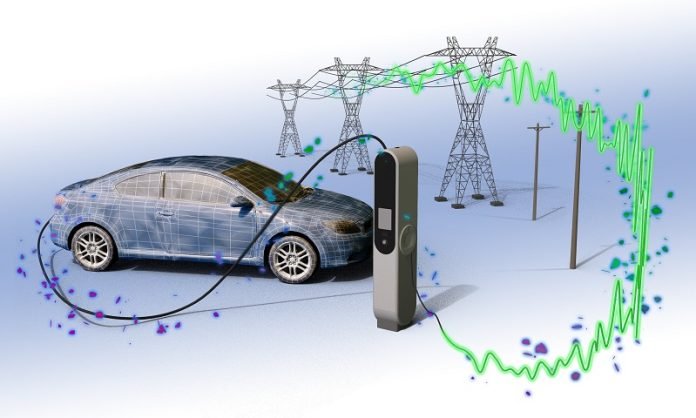
Electric cars are getting more popular as people look to reduce pollution and fight climate change.
But one thing holding them back is worry about finding places to charge, especially on long trips.
Researchers at Oak Ridge National Laboratory (ORNL) are tackling this problem head-on.
They’re finding ways to make electric vehicle (EV) charging stations more reliable, so drivers can charge their cars quickly and smoothly, just like stopping for gas.
Namwon Kim and his team at ORNL are focusing on two big reasons chargers might stop working: problems in the electricity grid and issues inside the charger itself.
Their goal?
Make sure EV chargers keep working even when there are electrical hiccups or a part of the charger breaks down.
First off, they created special algorithms (which are like computer programs) to manage how the chargers handle electricity.
Normally, if there’s a tiny problem in the power grid or a small fault inside the charger, it could stop charging.
This could be a big hassle, especially at charging stations where there’s no one around to fix things right away.
To deal with brief drops in power from the grid, the ORNL researchers came up with a clever solution. They designed their system to temporarily reduce the amount of power it’s using to charge the car.
Then, as soon as the power levels out, it goes right back to charging at full speed. This quick fix means charging can keep going smoothly without interruption.
But what if something goes wrong inside the charger? The ORNL team has an answer for that too. They figured out a way to let the charger adjust on its own if one of its parts fails.
Instead of shutting down, the charger can keep running at a lower power until it gets fixed. This means less downtime and more reliability for EV drivers.
The researchers didn’t stop there. They’re also working on making the whole charging station smarter.
If a charger has a problem, a central system gets notified automatically. This system can then make adjustments to ensure drivers can still charge their cars effectively.
All of this research is part of a bigger effort that includes managing how fleets of electric vehicles, like delivery trucks, get charged and keeping an eye out for cyber threats.
Looking ahead, the team is exploring how using battery storage and solar power could make EV charging stations even more dependable.
This work is a big step forward in making electric cars a more practical choice for everyone, aiming to make worries about charging a thing of the past.



